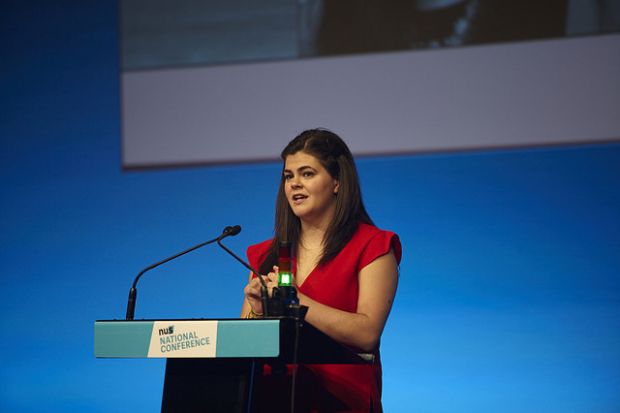The National Union of Students has launched an independent review into whether it is institutionally racist.
The audit has been ordered by Megan Dunn, the organisation’s president, in response to claims that were made at a meeting of the national executive committee by Malia Bouattia, the black students’ officer.
Details of specific allegations are not recorded in the meeting minutes but Ms Dunn confirmed that the NUS was “currently undertaking a review following an allegation of institutional racism, made by the black students’ officer at a NUS national executive committee meeting in July”.
“Any allegation of racism is a serious one, and I am proud to lead an organisation that takes seriously our duty to investigate this thoroughly and openly,” Ms Dunn said. “Part of our stated intention as an organisation is to challenge racism in all its forms, and so this review will run alongside our existing work striving for excellence in all areas of equality and diversity.”
Ms Bouattia is not the only member of the union’s top team to make allegations of institutional racism.
Last week, Shelly Asquith, the vice-president (welfare), tweeted that the “student movement [and] its institutions are institutionally racist”. “People need to properly accept that before we can begin to overcome it,” she said.
The NUS’s review is all the more significant because the organisation has been a longstanding critic of alleged racial discrimination in British higher education. Earlier this summer, Sorana Vieru, the vice-president (higher education), criticised universities’ “white, male and stale” environment, and the fact that they employ so few black female professors, in an interview with Times Higher Education.
In a letter to NUS staff, Simon Blake, the organisation’s chief executive, says that the review would be conducted by an external consultant or agency, and would be completed by January.
The letter, which has been seen by THE, says that the appointees “will be asked to explore and understand whether there is evidence of direct or indirect racism within [the] NUS’s culture, systems, policies, processes and structures and make recommendations about any changes we can make to ensure we fulfil our commitment to being an organisation that is truly fair, open, accessible and representative of all”.




